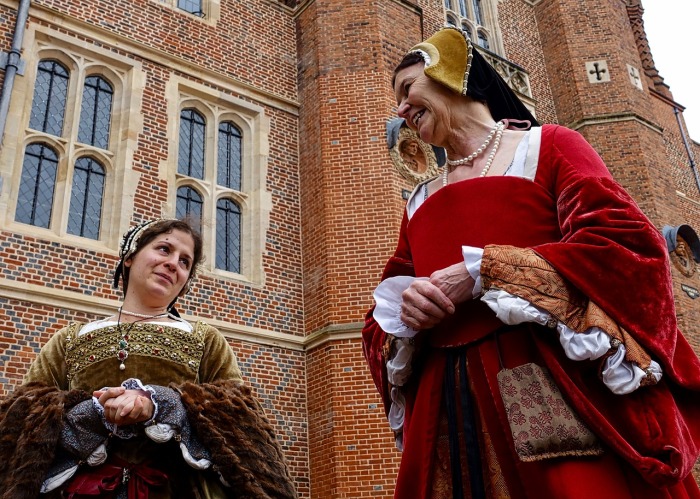A conversation between daughter and mother
Have long had a passion and interest for Tudor history, particularly, around Elizabeth I. However, thanks to Hilary Mantel I have more recently, become as intrigued by her mother, Anne Boleyn. To me it is deeply ironic that it is Elizabeth, Henry the VIII’s second daughter that reigns on her own for over forty years, when he was so preoccupied with begetting a son.
But sad, too, that Elizabeth never really knew her mother, so this is my imagining of the two women having the opportunity to talk frankly about their lives and it’s my small tribute to them, both.
So, without further ado I give you:
Elizabeth and Anne:
A conversation between daughter and mother

It is the year 1558 and Elizabeth the newly crowned Queen of England, is finally able to retire and take a few moments for herself. It is late, and Elizabeth has already been attended to by her ladies and she is now ready to rest.
She’s enjoyed her wonderful, whirlwind of a day, full of pomp, ceremony and moments that will stay with her for the rest of her life and so she is ready now to close her eyes and dream.
Or so she thinks, as she observes through her half closed eyes a form moving silently and purposefully towards the foot of her bed.
All Elizabeth can see initially is a form, and she assumes at first that it is one of her attending ladies, ‘What now?’ she thinks irritably, ‘Surely I can rest?’
It is not until the form reaches the edge of her bed without stopping to make a bow and await permission to draw closer, that Elizabeth realises it’s not one of her attendants. As Elizabeth is about to demand identification, and cry out, the form seats itself at the foot of the bed, smooths out it’s skirts, turns to Elizabeth and says:
‘Do you not know, me Elizabeth?’
The voice is cool and imperious, belonging to someone who is also well used to commanding respect.
As Elizabeth stares, it’s the headdress, the French hood that provides her with the clue. The last time she saw this style was on a portrait, of her mother Anne Boleyn, a portrait that had been lovingly commissioned by her father Henry VIII.
It is her mother Anne, somehow real and present and she wants to talk to her daughter.

‘You have done well, Elizabeth.’
This cool assessment, of Elizabeth, delivered with just a hint of maternal and familial pride is not overly affectionate. No one would guess that within this cool exterior lay a fierce pride, deeply buried that the daughter of the ‘Goggle eyed whore’, as Anne had been known, was now on the throne of England.
However, it is this apparent coolness that stings the romantic Elizabeth into blurting out:
‘Did you truly love him?’
Elizabeth, is of course referring to her late father, King Henry VIII and she notices how the air stills and cools around the form as it appears to consider this question and then turns slowly to face her, to answer with a cold and emphatic:
‘No’
Another pause and then:
‘No, he was the king. I was a young girl, already promised to another.’
Immediately, Elizabeth has another question:
‘Why didn’t you just become his mistress?’
At this the form of Anne snorts with derision, and responds with:
‘Would you be sitting on the throne of England now, if I had done that?’
In a tone heavy with sarcasm and disbelief.
Another pause and then:
‘You would not be Queen if I had made that choice.’
Acknowledging the truth behind this, Elizabeth stares down at her hands, but a small part of her thinks, I might have had you as a mother, though, but aloud she answers with a:
‘You paid a very high price for my throne’
‘And one I would pay again.’
Is the immediate response.
‘Can a woman really reign by herself?’, whispers Elizabeth half to herself, half to the apparition.
‘By God’s grace, you can, and you will.’
Is the stern and swift reply, from the form of Anne, as she turns again towards her daughter, eyes unfathomable and determined.
‘Though they will expect you to marry.’
Now it’s the turn of the air around Elizabeth to become still, as every muscle in her body tenses.
‘I think not.’ She enunciates carefully.
‘I may cede my person, but I will never cede my crown or my kingdom.’
At which point, the form of Anne starts to flow and lose shape like wax on a burning candle, thinks Elizabeth. And as it fades, she swears she can hear a faint:
‘That’s my girl.’
The End
Janice Taylor